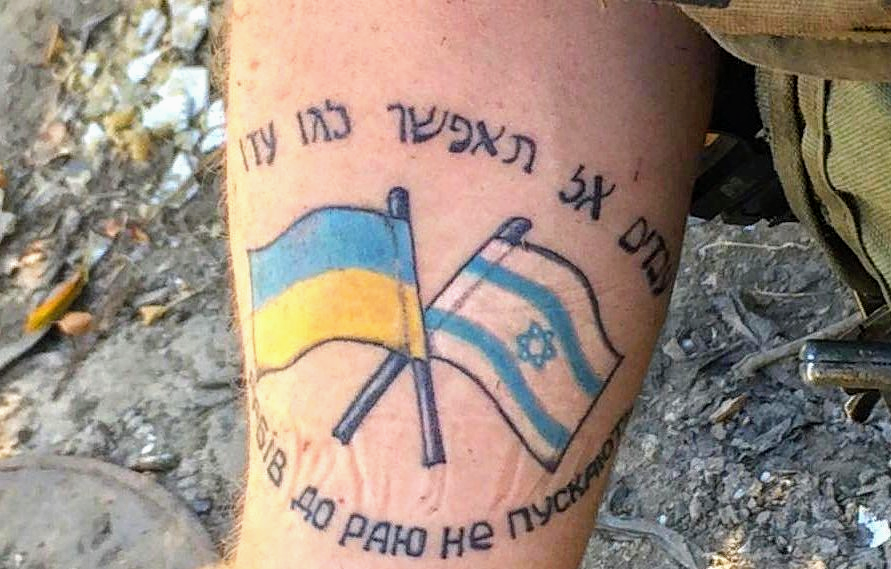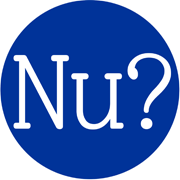We’ll Not Spare Either Our Souls or Bodies to Get Freedom

The words of Ukraine’s national anthem offer the world valuable insight into the lengths Ukrainians will go to defend their country:
We’ll not spare either our souls or bodies to get freedom…
In the past month, those words have been put to the test like never before. As Russia’s brutal onslaught continues, the patriotism of the Ukrainian people has not waned one bit; it has only surged. Their anthem is tearfully sung throughout this nightmare, in bomb shelters, hospitals, subways.
No place is excluded from the defiant displays of Ukrainian patriotism. Beyond the omnipresent displays of Ukrainian flags, billboards and banners, lately many citizens are getting tattoos of the flag and trident.
Patriotism in Ukraine is flourishing, led by an unlikely leader who is wildly popular. That patriotic zeal — the Ukrainian people’s secret weapon — is Putin’s biggest obstacle.
It makes one wonder: in present day America, at such a deeply polarized time, are we still capable of coming together with such patriotic fervor? Could we rally around the leadership of a politician — regardless of party affiliation — with love and admiration anything like what Ukrainians are expressing toward President Volodymyr Zelensky?
What is the state of American patriotism in 2022?
The data is not encouraging. American patriotism is indeed waning, particularly among younger Americans. According to the polls, there’s a patriotism gap among the generations, with about 50% of Gen Z and Millennial respondents self-identifying as patriotic compared to over 80% of Baby Boomers. Gallup reports of a “steady decline” of Americans who say they are “extremely proud” of America — the lowest level in 20 years. Among Americans 18-24, 35% stated that they were “slightly or not at all proud to be American.”
There is a legitimate debate on what it means to be patriotic. One can obviously love America and not be decked out in red, white and blue apparel or wear flag pins all the time. But the polling does reveal trends among younger people that raise serious questions about what it means when a nation becomes less patriotic, particularly for future generations.
It’s a long way from the formative years of Baby Boomers. We had patriotism drilled into our heads from an early age. We started each elementary school day reciting the Pledge of Allegiance (hand over heart, of course). We attended 4th of July parades and learned the words to all the major patriotic songs. We cheered on the U.S. space program as if it were a family accomplishment; we even collected trading cards with the images of the astronauts, the epitome of post-war American heroes. When Apollo 11 landed on the moon, it was the ultimate moment of patriotic pride — irrefutable proof that America was the best place on earth.
Today, I feel like an old-fashioned patriot. I unapologetically display the American flag on a flagpole at my house; I have a flag sticker on my laptop. I can still get sentimental hearing patriotic songs and I’ve never stopped getting inspired by the site of the national monuments in Washington DC. I’m well aware of the country’s flaws, but still believe that America is usually the good guy. I reject any suggestion that America is no better than Russia — an assertion I find to be outrageously cynical and inaccurate.
I fear I am a dying breed, or at least a fading one. I openly embrace my patriotism, and if that puts me out of sync with others who view my sentiment as uncool or anachronistic — especially to younger generations — so be it. I’m getting used to that feeling.
A few years ago, I witnessed a remarkable patriotic scene while in Israel, where patriotism is often on full display. I was with a tour group on the streets of Tel Aviv. As we stood outside Independence Hall — the building where the modern State of Israel was born — a few members of our group started singing Hatikvah, the national anthem. In no time, a large number of strangers from the street came over and joined in. It was a spontaneous and joyous display of national pride and patriotism. As I sang and looked around I was struck by how this scene would never take place in America.
That pride is Israel’s secret weapon, just as the patriotism of Ukrainians is that country’s secret weapon. There’s a lot we can learn from them.
I don’t know how much patriotism America has left in the tank — whether the trend lines will continue or change. But I do believe that at some point we will be tested, perhaps as existentially as Ukraine and Israel are. At that point, our ability to rally around the flag with patriotic unity will be either our greatest strength or our undoing.
